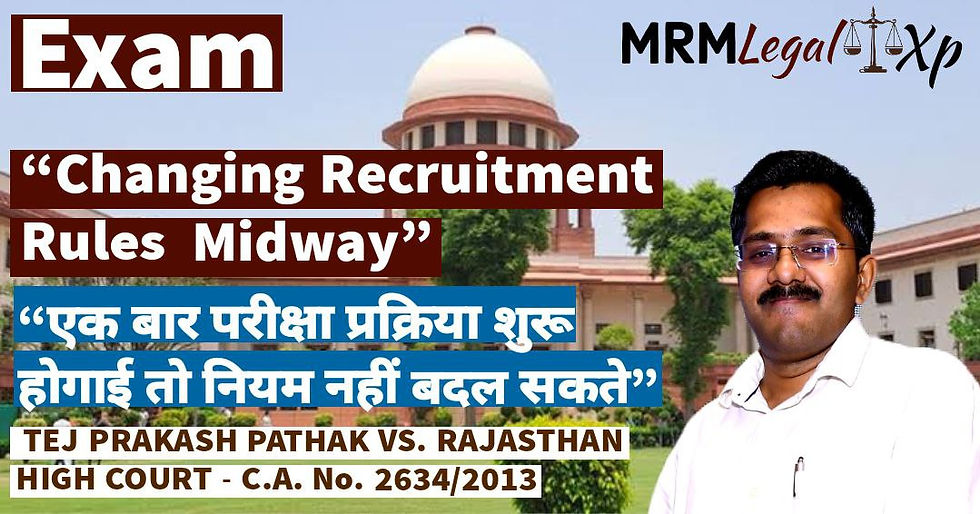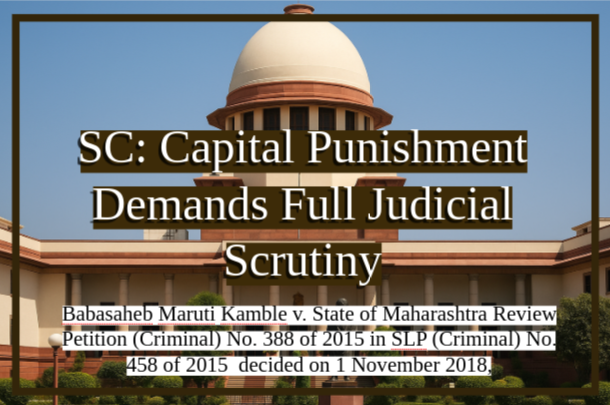SC Verdict on Recruitment Rules: Tej Prakash Pathak Case Explained
- M.R Mishra

- Nov 13, 2024
- 1 min read
Updated: Nov 14, 2024
The Tej Prakash Pathak case revolves around the principle that once a recruitment process starts, the “rules of the game” regarding eligibility and selection criteria should not be altered.

Here, the Supreme Court considered appeals against a decision by the Rajasthan High Court, which in 2009 held a competitive examination for 13 Translator posts.
Initially, there were no provisions in the relevant rules or notifications that required candidates to score a minimum cut-off to qualify, but after the examination, the Chief Justice imposed a 75% minimum qualifying mark.

This new benchmark left only three candidates qualified out of the 21 who had appeared.
Some unsuccessful candidates argued this change amounted to altering the rules mid-process, creating unfairness.
The High Court upheld the decision to maintain high competence standards, stating candidates in the select list had no right to be appointed unless they met further specified criteria.
In questioning the propriety of mid-process changes to selection rules, the Supreme Court explored two views: one that rules should not change during recruitment and another that stricter criteria might be set to ensure merit-based hiring.

The Court sought to clarify whether setting new standards (like cut-off marks) could be applied only if established before the process starts and whether such standards could lawfully be modified to maintain high competency without arbitrary changes after testing is complete.

This case reaffirms the importance of fairness and transparency in public hiring to prevent manipulation and protect candidates' legitimate expectations.








Comments